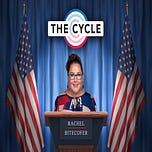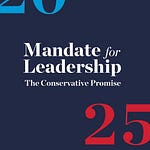The first time I posted about the harsh reality of America’s collapsing democracy, it seemed like many folks were genuinely surprised to see that America is not actually the Greatest Democracy on Earth.
According to the democracy index compiled by the EIU and published annually by The Economist, America is actually a “flawed” democracy.
The United States was downgraded from “full” to “flawed” democracy after half of America handed the keys to the White House to a wannabe dictator-con man who immediately began to roll back civil liberties and ignore the rule of law.
Sadly, America’s not even the best “flawed” democracy.
Technically we’re only the 6th best “flawed” democracy, one spot behind Israel (a state folks who have been mainlining antisemitic propaganda from Hamas for the past decade describe as an “apartheid state” of “colonizing” “oppressors” committing “genocide.”)
That’s why the very second I saw the topic Steve Levitsky’s and Daniel Ziblatt’s latest book, Tyranny of the Minority I knew I had to get them onto the show.
In Tyranny, Levitsky and Ziblatt, who are both professors at Harvard and are also the authors of another important book you should definitely read titled How Democracies Die, have put their fingers right onto the pulse of something you need to understand: America’s institutions are failing and must be reformed for our democracy to ever flourish again.
Our institutions were brilliant constructs of an 18th century world and a newly born country with one common fear among its creators: too much consolidation of federal power.
Thus, America’s Constitution was constructed to remove the creation of policy from the direct control of its chief executive, which is why most Americans are familiar with the terms “checks and balances” and “separation of powers” even if they’d be hard-pressed to specify what it means exactly, or how it actually works, in any meaningful way.
So concerned with the centralization of national power were the Founding Fathers that they codified checks and balances and separation of powers within each branch of government too.
As America is painfully learning right now, the House of Representatives was given sole “first mover” power in the appropriations process even though the “power of the purse” was granted to Congress at large. We can not fund the government without the House of Representatives which is why having it closed for 3 weeks while the Republican Party fights over custody of the kids is so damaging to our domestic and foreign policy interests.
Its why federal judicial appointments and treaty approval power belongs solely to the Senate.
Its why Chief Justice John Marshall wasn’t laughed out of the room when he asserted that the judicial branch had a “right of review” of actions taken by the legislative and executive branches in what went on to be called “judicial review.”
Yes, the Founding Fathers were positively OBSESSED about centralized power and did everything they could to gum up the works and force compromise in a system designed with one main goal in mind: to avoid creating a tyranny of the majority.
American institutions are designed to have a bias against action. It is very easy to propose legislative goals and very hard to actually enact them. This was true in America’s best of times and this, my friends, is not the best of times.
Fast forward 236 years and the very same institutional checks and balances that were supposed to protect us from a king have left America all but paralyzed on policy formation. Name a pressing policy problem and you’d be hard pressed to find Congress effectively legislating it despite robust public opinion begging for action on issues like immigration reform, climate change, and gun safety.
So what happened? Why have the institutions that served our young Republic so well, for so long, suddenly feel like they’re in danger of collapse?
Listen and find out.

















Share this post